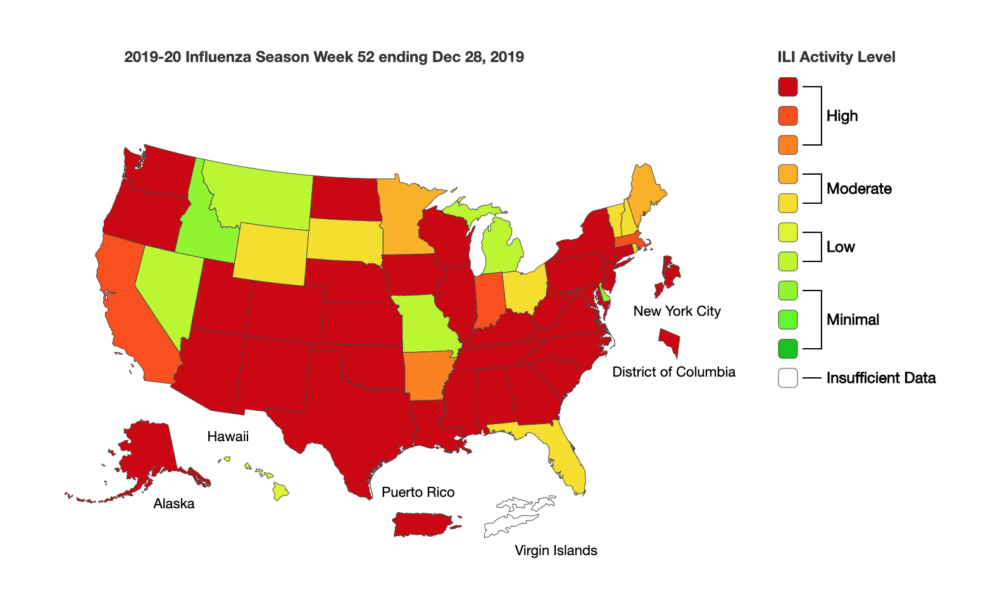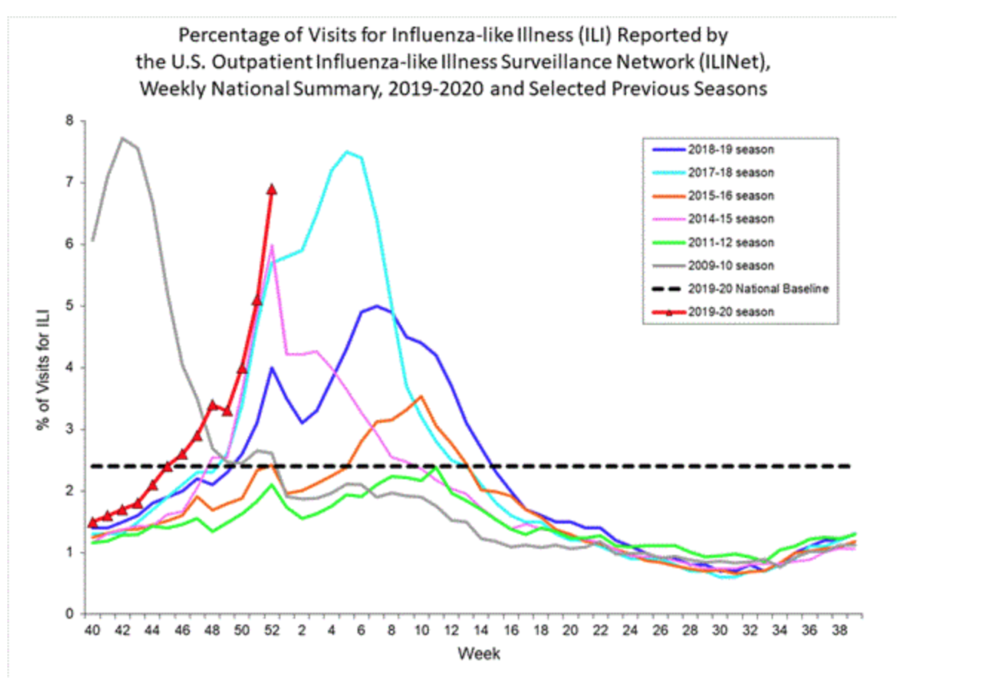Advertisement
With Mass. Flu Season In Full Swing, Emergency Department Reports Crowding

High flu season has most definitely hit here in Massachusetts and nationally. The lines on the graphs showing flu-related doctor's visits are rising steeply, and the states on the national map are heating up to orange and red, meaning flu activity is high.

Every flu season is bad. In the 2017-18 flu season, a particularly bad one, more than 45 million Americans got sick and more than 60,000 died, the CDC reports. There are signs this winter could be similar.
So you can understand why Brigham and Women's Hospital doctors were feeling concerned enough to issue a plea Thursday to the public: The emergency department's typical busy January load is already unusually heavy, with weeks left to go in the flu season.
"Our hospital, all the hospitals in the region, are crowded with people seeking care for influenza-like symptoms," says Dr. Paul Sax, clinical director of the Division of Infectious Diseases at Brigham and Women's.
He and the hospital's vice chair of Emergency Medicine, Dr. Chris Baugh, are urging younger, otherwise healthy people with the fevered chills and other symptoms of flu not to go straight to the ER when a phone call to a doctor or a visit to urgent care would make more sense.
Patients should seek emergency care if they've having shortness of breath, are severely dehydrated or feel confused, Sax says.
"Fever alone, while worrisome, is not a reason, alone, to seek care in the emergency room for an otherwise healthy young person," Sax says. "However, any of those three things that I mentioned would be very concerning and should warrant medical attention and evaluation."
Patients who are very old or very young, or who have underlying health conditions — including heart or lung disease, or pregnancy — are also likelier to need emergency care, he says.
The high flu season is expected to last for weeks, and it's not too late to get vaccinated, health officials say.
Advertisement
This flu season got off to an early start, mainly among children, Sax says, but over the last two weeks it has hit many adults as well.
Emergency departments can handle surges of patients, Baugh says, but "we're noticing a level of crowding that is concerning us, and we still have a lot more flu season ahead of us."
January is usually the busiest month for emergency departments, Baugh says, but "this year is striking those of us who've experienced many Januarys in the past as particularly challenging."
And "that's not something that we are uniquely feeling at this hospital," he adds. "We are experiencing that throughout the city and the Commonwealth as well."
It is not yet clear how good a match this year's vaccine is for the current dominant virus strains.
One final plea from Dr. Baugh: Some patients seek emergency care because they need notes for work to confirm they were sick with flu. It would be helpful, he says, if employers did not require such notes.
